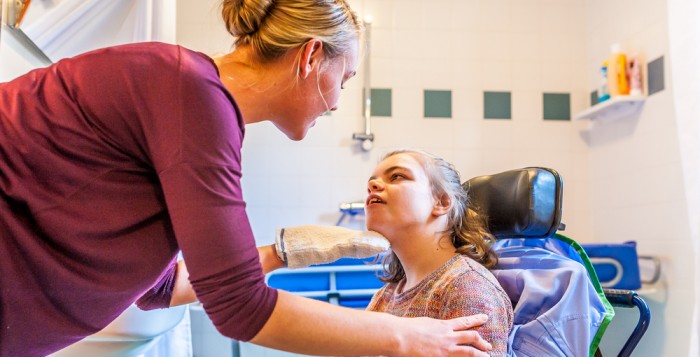Carol Ferenz
February ISAC Meeting Materials and Updates Now Available
ODP Announces Residential Provider PBC and P4P Data Submission Tools Availability
ODP Announcement 25-020 is to inform residential providers that the link to the Performance-Based Contracting (PBC) Data Submission Tool will be available on February 15, 2025. The Residential Services Provider PBC Data Submission Tool is for all providers who did not submit PBC information in August 2024 and will instead be submitting data and documentation during the current review period (February 15, 2025 – March 15, 2025).
The Data Submission Tool is web-based in QuestionPro and was created as a mechanism for providers of Residential Habilitation, Supported Living, and Life Sharing services to submit data and documentation related to their organization’s performance. In addition to this communication, ODP will send a notification with instructions to applicable residential providers via the QA&I listserv with details for completing the PBC Data Submission Tool.
In addition, ODP Announcement 25-019 informs residential providers that the link to the Pay for Performance (P4P) Data Submission Tool will be available on February 15, 2025. The same P4P Data Submission tool will be used for all tier categories. All responses are captured electronically via data input or document upload. Participation in each area is optional; providers may submit data for one, two, all three initiatives, or none.
It is recommended that providers complete the required Performance-Based Contracting (PBC) Data Submission Tool prior to submitting for P4P, as providers will be given the option in the P4P tool to use the same documents submitted for Credentialing (Primary) and Employment from the PBC tool.
The Provider P4P Data Submission Tool is available here. Again, the tool will be available February 15, 2025.
Please direct any questions about this information to the ODP PBC inbox.
March 2025 ODP Training Calendar Now Available
Outreach to Your Members of Congress is Needed: A Message From ANCOR
Dear ANCOR Members,
Next week, some Members of Congress will be back in their districts, making it the perfect time to meet with them and urge them to protect Medicaid funding for home and community-based services (HCBS).
The newly released House budget framework calls for 1.5 trillion in cuts over ten years and directs the House committee with jurisdiction over Medicaid to cut at least $880 billion in spending. While the details have not yet been finalized, these reductions would likely result in deep cuts to Medicaid funding. Even if proposals do not specifically target funding for I/DD services, the resulting pressure on state budgets from Medicaid cuts creates an elevated risk of further limits and cuts to services for individuals with I/DD. In-district meetings and site visits are some of the most effective ways to educate lawmakers and their staff on how these cuts would harm people with intellectual and developmental disabilities (I/DD), providers, and families.
To help you prepare, we’ve put together key advocacy resources, including:
- Medicaid Cuts Fact Sheet – Key talking points on how federal Medicaid cuts shift costs to states and harm disability services.
- ANCOR Medicaid Resource Center – Data and tools to support your advocacy efforts.
- In-District Meeting & Site Visit Tool – Tips, sample meeting requests, and scripts for engaging your lawmakers.
Why Your Action Matters:
Studies show that constituent messages are the most effective way to influence lawmakers. When they see firsthand the impact of Medicaid-funded services in their communities, they are far more likely to protect funding.
Take this opportunity to reach out to your Members of Congress while they’re home next week or check their website for an email list signup to make sure you don’t miss any opportunities to engage while they are home — let’s make sure they understand why Medicaid funding must be protected.
Thank you for your advocacy.
PCHC Announces ISLEA Training Program
Improving Health Care Outcomes for Individuals With Profound Autism: National Council Webinar on Feb. 20, With Richard Edley, President/CEO of RCPA, Moderating
DHS Proposed 2025/26 Budget Webinar Materials Now Available
Secretary Val Arkoosh and leadership from the Department of Human Services (DHS) hosted a webinar to discuss the proposed 2025/26 budget for the Department on Friday, February 7, 2025.
The recording is available here, and the PowerPoint has been made available.
RCPA will continue to update members on the budget as information becomes available. If you have further questions, please contact your RCPA Policy Director.
Greenspace Health to Host Webinar on Enhancing Eating Disorder Treatments March 13
March 13, 2025
1:00 pm EST
Register Here
Greenspace Health, in partnership with Project HEAL, a nonprofit organization in the U.S. focused on equitable treatment access for eating disorders, are co-presenting an educational webinar. This unique session, moderated by Carsen Rhys Beckwith, Program Director at Project HEAL, will bring together a panel of experts in both Measurement-Based Care (MBC) and eating disorder treatment.
Greenspace’s Chief Growth Officer, Jesse Hayman, and Dr. Wendy Oliver Pyatt, Co-founder, CEO and Chief Medical Officer at Within Health and CEO and Co-founder at Galen Hope, will share how MBC fosters meaningful collaboration in eating disorder treatment, supports personalized interventions, and ultimately improves outcomes for people in care.
Don’t miss this opportunity to uncover the impact of MBC in eating disorder treatment, with a focus on driving equity and practical strategies for implementation.

















